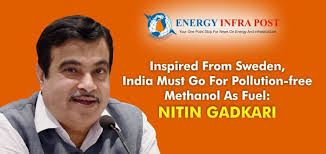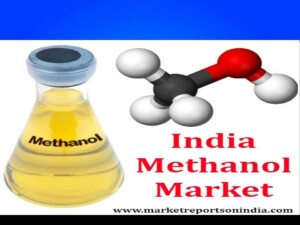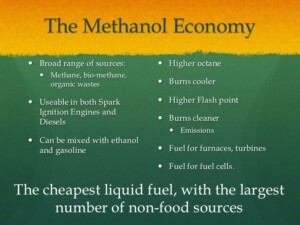Niti Ayog is finally serious about Methanol to fuel India’s transport sector which can double farm income and make Indian air cleaner. This can be achieved only if it is taken up on a mission mode.
The powerful oil and gas lobby around the world is known to have systematically discouraged the development of alternative transportation fuels in the last 50 years. “One that oil and gas companies have consistently crushed is methanol,” Prem Shankar Jha observes in his recent book ‘The Dawn of Solar Age’ (https://sustainabilitynext.in/book-review/how-solar-could-change-the-world-order/
Burning of crop residues contribute to serious air pollution in northern India, especially in the winter. A robust plan to convert bagasse and sugarcane waste into biofuel oil could, in one estimate, double the earnings of farmers. With Indian agricultural sector in deep crisis, sufficient additional income in farmers’ hands could improve their well-being.
Replacing old boilers with gasifiers and producing diesel and air transport fuel in addition to ethanol from it, would boost sugar sector’s revenues four to five fold. It would make this the most lucrative sector in India overnight.
At 2014 prices of sugar, ethanol, methanol, gasoline, diesel and electricity in India, the sales revenue of a conventional sugar plant would amount to $63 million a year. However, the new gasifier method could take it to more than $300 million. What are we waiting for?
According to rough estimates India could save a good percentage of its $100 billion in import bills if it significantly replaces its transport fuels with biofuels. The value of sugarcane crop could double and revenue from waste will be extra. Jha gleefully observes: “More than a hundred million families would face a transformed future.” This industry could make India largely self-sufficient in transport fuels and transform the future of agriculture.”
Blatant Mismanagement of Sugar Sector
The financial numbers thrown here are not someone’s imagination nor are they exaggerated. India’s sugar sector is only second in size to Brazils. But this sector has always been sick largely due to heavy political meddling in all forms of decision making, the government’s unscientific price guarantee strategy, lack of high quality managerial leadership, gross financial mismanagement resulting in its inability to modernize.
Only a mission mode, for which India is famous for, for this sector, can unlock tremendous hidden value. More than financial, there’s very high social and even political dividend to be had. This requires much more attention from the policy makers and pressure from consumers than even ‘Make in India’.
Electric Vehicles to Methanol’s Rescue
This is an interesting development. Excessive focus on electric vehicles as the future has got many traditional auto manufacturers distraught. Although they have announced their own EV plans, they wouldn’t mind keeping the conventional car going for a decade or more. Even consumers would be under less pressure to discard their cars in favor of EVs soon.
The good news, although coming a little late, from Niti Ayog member V K Saraswat recently, is that an indigenous path with methanol and ethanol-powered vehicles is being created. A detailed project-report on India’s methanol-based transportation system is expected soon. Methanol and ethanol can be produced from coal and biomass of which India has in plenty.
It’s not that India has not had a biofuel policy or plan. But it has not had powerful backers either in the government or the industry. Its ethanol mix in diesel is as good as not being there. It’s a good time for the auto industry to push for biofuel, more to ensure its survival.
A realistic transportation fuel policy has no choice but to have a good mix of biofuel driven, hybrid, EV and oil. There is a need for massive capacity building for biofuels since the existing cars can run on them and are eco-friendly. The proposed switch over to EV by 2030 looks ambitious. Moreover, shortage of lithium for batteries is causing grave concerns for EV expansion not only in India but worldwide.
A methanol-fueled economy also gives India a good chance to beat negative effects of climate change strongly by 2030.
Say cheers to methanol!
By Benedict Paramanand













cleaner India..better india
Great Initiative.. Cleaner India..Better India